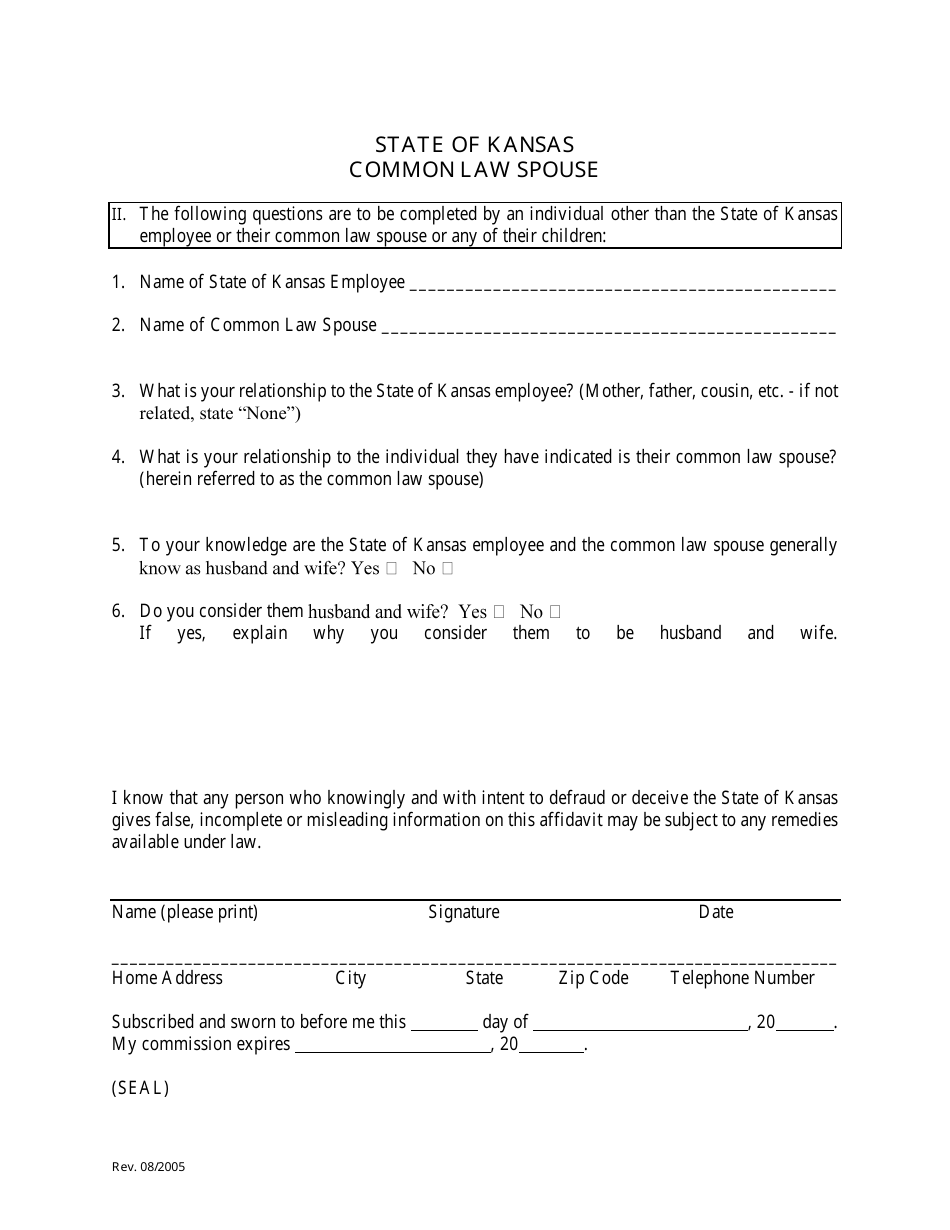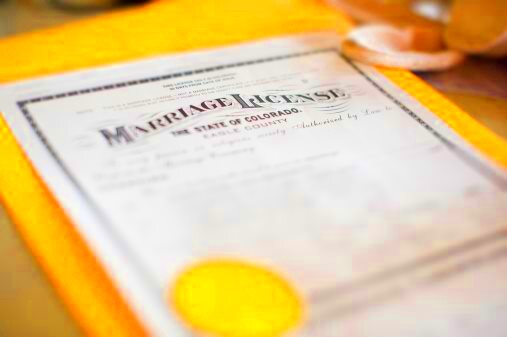Enforcement of Common Law Marriage in Kansas
Even though it is not familiar like conventional marriage to many people, common law marriage is greatly significant in Kansas. Two individuals share their lives and live together without undergoing the legal process that most people perceive to be obligatory. In Kansas, such unions are recognised enabling partners to enjoy various entitlements similar to those enjoyed by spouses who have wedded via a church or other institutions. This aspect of the law is unique but goes unnoticed until one gets entangled in intricacies of love affairs and legality.
Requirements for Common Law Marriage

For a common law marriage to be recognized in Kansas, several important factors must be considered. Living together is not all that is required. The important points worth noting include:
- Mutual Consent: Both partners must intend to be married. This is often demonstrated through shared commitments and discussions about your future together.
- Cohabitation: The couple must live together for a significant period. While there’s no set time frame, long-term cohabitation is a key factor.
- Public Declaration: Couples should present themselves as married to friends, family, and the community. This can be through shared last names, joint tax filings, or simply referring to each other as spouses.
These criteria represent the essence of partnership and commitment, thereby rendering common law marriage a worthy option for a good number of individuals. I remember one of my friends who cohabited with her fiancé for a couple of years without ever thinking about marriage until some difficulties came their way requiring them to rethink their situation. The unity that they shared was equivalent to that in all legal marriages.
Establishing Common Law Marriage

More is needed than simply fulfilling the criteria to form a common law marriage. It means breathing life into the partnership through shared experiences. You can strengthen your claims by doing the following:
- Gather Evidence: Collect documents that demonstrate your shared life. This includes joint bank accounts, leases, or utility bills in both names.
- Witness Statements: Friends and family can provide testimonies about your relationship, which can be invaluable if legal questions arise later.
- Legal Recognition: Although Kansas recognizes common law marriages, it’s wise to consult a lawyer to ensure all aspects are covered. This can help clarify rights, especially regarding property and inheritance.
This process was seamlessly navigated by one couple I know through collection of evidence concerning their life together. It was touching to see their friends come out on support for them as a couple. A common law marriage is not merely paperwork; it represents your experiential journey.
Legal Rights and Obligations
In Kansas, a common law marriage brings with it certain legal obligations and rights that must be understood before entering into such a union. A lot of people erroneously think that they do not have any legal standing if they do not hold a formal wedding ceremony. However, in reality, the same rights are enjoyed by common-law spouses as those who are legally married. This implies that you will have rights over issues related to property, inheritance and some matters like medical decisions.
Some important rights and duties include the following:
- Property Rights: Each partner may have a claim to property acquired during the marriage. This is particularly important in cases of separation.
- Inheritance Rights: Without a will, common law spouses often have rights to inherit from each other, just as traditional spouses do.
- Health Care Decisions: Partners can make medical decisions for each other in times of crisis, similar to legally married couples.
That time I came across with a couple who faced a health scare, only to find that it was important to have legal standing because they were united in their efforts. It strengthened their bond and reminded them of the need for comprehension of such rights. Do not forget, even though love is the foundation, legality is what makes up a house.
Challenges in Enforcement
Common law marriages are beneficial, but when it comes to the enforcement of their rights, it becomes a Herculean task. What if you find yourself in a situation where your relationship is challenged and therefore, your rights are threatened? Such situations are common during separations or disagreements over land/property. Some common difficulties include:
- Proving the Marriage: Without a marriage certificate, proving a common law marriage may require evidence, which can be difficult to gather.
- Disputes Over Property: Differentiating what was acquired before or after the marriage can lead to conflicts.
- Legal Recognition: Not all states recognize common law marriage, which may complicate matters if you move or travel.
Based on what I have seen, an associate of mine encountered a huge obstacle in a real estate disagreement. The amount of emotions involved was staggering; teaching us that love can be very strong but so too are legalities. In order to avoid future problems it is important to record your connection and expect troubles coming ahead.
Common Misconceptions
Common law marriage has a lot of myths and misunderstandings surrounding it. This makes many people believe that it’s just about cohabiting for some time when nothing could be further from the truth. Some of the most common myths will be clarified by us here:
- Myth One: “Living together automatically creates a common law marriage.” This isn’t true; intent and public representation play significant roles.
- Myth Two: “You can’t get divorced if you’re in a common law marriage.” In reality, common law marriages can be dissolved just like formal marriages.
- Myth Three: “Common law marriage is only for certain couples.” It applies equally to all couples, regardless of gender or background.
The awareness about these misconceptions is very important. Once, I was talking with a relative who said that she could not claim anything after her break up because they were not officially married. This made me realize how much there is to be done in terms of creating awareness and understanding among our people.
Frequently Asked Questions
In case of common law marriage in Kansas, many questions arise. It’s a topic that often leaves people scratching their heads. Here are some frequently asked questions that can clarify doubts and provide insights:
- What is the minimum duration required to establish a common law marriage? There’s no set timeframe in Kansas, but living together for an extended period with the intention to be married is essential.
- Can a common law marriage be dissolved? Yes, common law marriages can be legally dissolved just like traditional marriages. It may involve a formal divorce process.
- Do I need to file anything to recognize a common law marriage? While there’s no formal filing in Kansas, having documentation that supports your claim—like joint accounts or leases—can be beneficial.
- What if one partner doesn’t believe in common law marriage? Both partners must mutually agree to be in a common law marriage for it to be recognized. If one partner does not, it may not hold legal weight.
My discussions with my friends and family have shown me that most of the time personal experiences are the sources of these questions, indicating how vital it is to understand the law. Understanding what rights you have and obligations you must fulfill will help in making informed choices regarding your relationship.
Conclusion
Kansas common-law marriage allows for a different way for couples to have their unions legally acknowledged, with rights and obligations akin to those of conventional marriages. Such an understanding will enable you to confidently traverse this tricky terrain because of the requirements, legal repercussions and common myths about it. Thus, if you are thinking about establishing a common-law marriage or just want to clarify what type of relationship you’re currently in, start by informing yourself.


